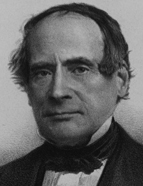

After 1846, Denis became a clearly influential model in Portugal. He revitalized the artistic, literary and historical studies of a new generation of key figures such as D. Fernando II, Herculano, Raczynski, Juromenha and Varnhagen, who was already in Spain at that time. He continued writing and published other titles (among which Une fete brésilienne celebrée à Rouen en 1550 in 1850) practically until his death, a nonagenarian who had been forced to retire just a short while before from the Sainte-Geneviève Library. For the whole of the 20th century he remained the incontestable patron of Portuguese studies in France, influencing several generations of French Lusophiles such as Georges Le Gentil, Léon Bourdon and Jean du Pins, some of whom had their work published by the Calouste Gulbenkian Foundation in Paris.
The model applied by Denis to the study of sources and to a picturesque and popular view of the History of Portugal was followed in Portugal from the end of the 19th century to the late 1930s by figures like Teófilo Braga, Pinheiro Chagas and Barbosa Colen. They naturally had access to other intellectual tools and were able to draw on other sources, unknown in his time. Denis's chief legacy was the idea of popular history divulged in instalments but with a solid scientific base, open to a more generalist public, focusing on curiosities and anecdotal aspects of Portuguese history but at the same time clarifying obscure points and giving access to an aggregate view of the whole.
Works by the author: Le Brésil, ou histoire, moeurs, usages et coutumes de ce royaume (em colaboração com Hyppolite Taunay), 6 vols., Paris, Nepveu, 1821-1822; Résumé de l'histoire du Brésil, Paris, 1825; Résumé de l'histoire littéraire du Portugal, suivi de l'histoire littéraire du Brésil, Paris, Lecointe et Durey, 1826; Chefs d'Oeuvres Étrangers... traduits en Français, Paris, Chez l’Advocat, Libraire, 1833; Brésil Pictoresque, Paris, Firmin Didot Frères, Editeurs 1837; Chroniques chevaleresques de l'Espagne et du Portugal, suivies du Tisserand de Ségovie, drame du XVIIe siécle, publiées par Ferdinand Denis, bibliothécaire de l'Instruction publique, Paris, Ledoyen, 1839; Camoens et ses contemporains, Paris, Librairie de Charles Gosselin, 1841; Le Portugal Pictoresque, Paris, Firmin Didot Frères, Editeurs, 1846 (Portugal pictoresco ou descrição histórica deste reino. Por M. Fernando Denis. Publicada (sic) por uma sociedade, Lisboa, Tipografia de L.C. da Cunha, 1846-1848, 5 vols.); FRANCO, Afonso Arinos de Melo, Algumas cartas copiadas no arquivo de Ferdinand Denis, Coimbra, Coimbra Editora, 1943 (separata de Brasília, vol. II); BOURDON, Léon, Lettres familières et Fragment du Journal intime de Ferdinand Denis à Bahia (1816-1819), Coimbra, Coimbra Editora, 1957.
